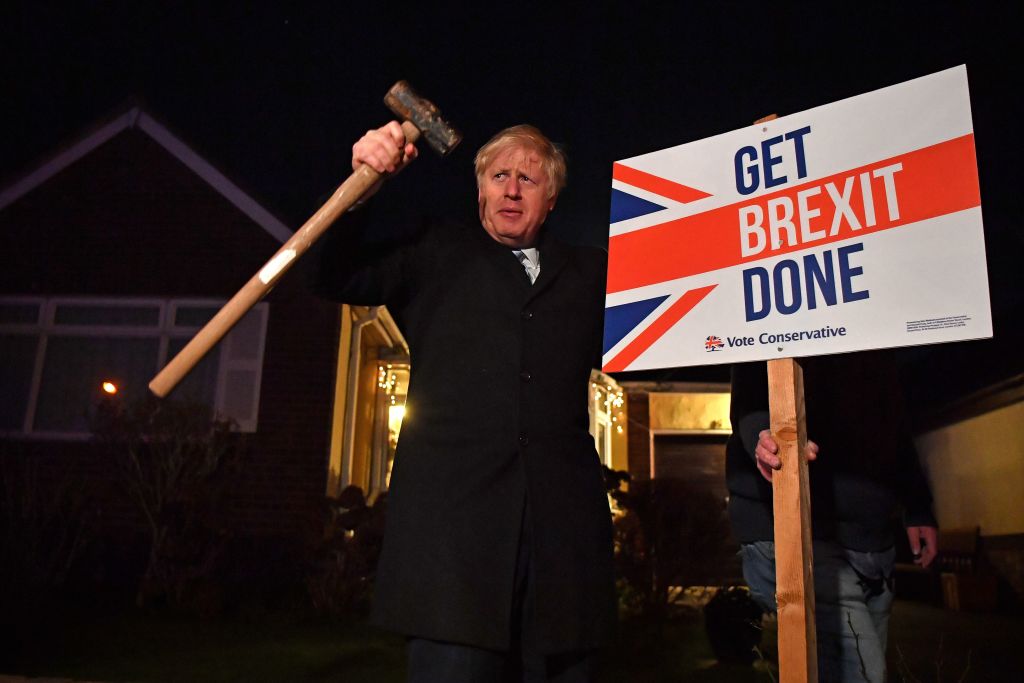Here’s something Brexiteers might want to keep an eye on. While the country’s attention is welded to the Tesco delivery website, there are moves afoot to delay the Brexit negotiations. Fabian Zuleeg, chief executive of the European Policy Centre, has called an extension of the transition period ‘an absolute must’ given the Covid-19 outbreak. He contends:
‘There will simply not be any bandwidth to focus on the negotiations, which require a delicate balance of give and take. In a situation with major healthcare challenges in the short- and long-term and economic challenges already requiring urgent action, there will not be enough political time and attention to successfully conclude this EU-UK agreement.’
The right-leaning European People’s Party (EPP) has put out a statement warning the government not to ‘expose itself to the double whammy of the coronavirus and the exit from the EU single market’. Luxembourg MEP Christophe Hansen, a member of Strasbourg’s international trade committee, said: ‘I can only hope that common sense and substance will prevail over ideology. An extension of the transition period is the only responsible thing to do.’
The SNP is also demanding a halt to the transition process. The party’s Brexit spokesperson Philippa Whitford wants ministers to ‘hit pause on all Brexit negotiations’, adding: ‘Continuing talks and hurtling towards the transition period deadline would be irresponsible and an act of economic and social self-harm.’
In response to Monday’s EPP statement, a government spokesperson said the Prime Minister ‘has no intention of changing’ the December 31 date for leaving the single market and customs union. Whitehall is also pointing out the inconvenient fact that the deadline is a matter of law, per the European Union (Withdrawal Agreement) Act. To change the date, you have to change the law and that means taking Conservative MPs with you.
Patrick Maguire over at the Staggers quotes Tory sources suggesting some backbench resistance to an extension. To those not invested in completing Brexit, this will sound like typical Tory head-banging on Europe. We’re in the middle of an international crisis — surely that must come first. To those who are invested in completing Brexit, however, the calculation is not as straightforward as you might think. There are several reasons for Brexiteers to insist the government stick to December 31. Most fundamentally, the Prime Minister and the Conservative Party gave their word to the nation. ‘We will not extend the implementation period beyond December 2020,’ the 2019 manifesto pledged. If Boris can’t seal the deal by the end of the year, he will have managed to get Brexit done and undone again within the first full year of his premiership.
Physically meeting or travelling to meet is impossible right now and the coronavirus is monopolising the endeavours of ministers and bureaucrats on either side of the negotiations. Those are reasonable grounds for extending the transition – but extending it to when? We have no idea how long the crisis will last, how long the current lockdown will remain in place (three weeks seems decidedly optimistic at this point), or how long social distancing measures will have to continue.
Virus-suppression modelling from Imperial College London on 16 March suggests that ‘social distancing (plus school and university closure, if used) need to be in force for the majority of the two years of the simulation’. We are expected to reach peak infection in the next couple of weeks but that may not be our only peak. Health experts generally agree that China has passed peak point but, as the World Health Organisation says, ‘there’s no guarantee this will remain so and there’s no room for complacency’. Policy-makers in Whitehall will be watching closely what happens in the People’s Republic after the lifting of a two-month lockdown in Wuhan.
If both sides of the Brexit negotiations lack the necessary ‘bandwidth’ during this pre-peak period of Covid-19, it is difficult to see how that could change during the peak and even afterwards. But public health emergencies are also social and economic emergencies and the latter can outlast the effects of the former. Kate Andrews says the cost of coronavirus bailouts and subsidies ‘is taking us over the edge of what we know, into uncharted monetary and fiscal territory’. The post-pandemic period will be dominated by reviving the economy, rebuilding the NHS, driving unemployment back down, and regaining a handle on public finances. None of these tasks will be easy. Any one of them would, in normal times, sit at the top of a government’s agenda. Doing all of them (and more) at once leaves precious little time for finalising Brexit. Besides, ‘now is not the time to be quitting the single market’ is an even more appealing argument after a pandemic than during one.
There are too many Rumsfeldian unknowns to make anything more than a semi-wild guess at this stage. Extending transition deadline day could mean a matter of months or it could mean a matter of years. The government is asking everyone to make big sacrifices in the fight against coronavirus and Brexiteers might eventually be asked to sacrifice December 31. If they are, it could be a longer sacrifice than they realise.







Comments